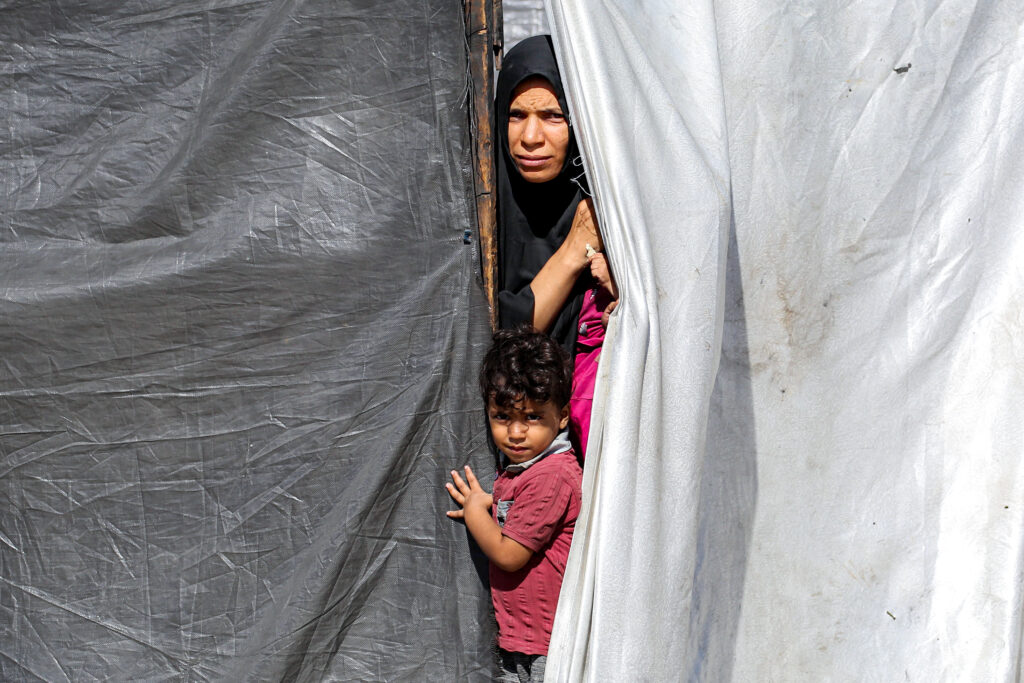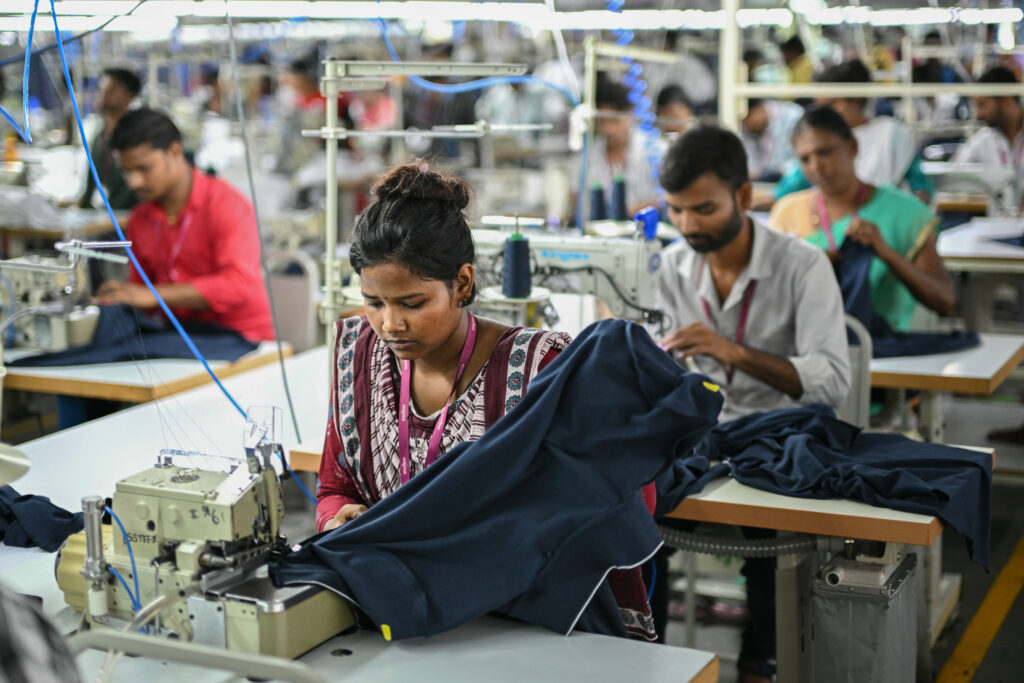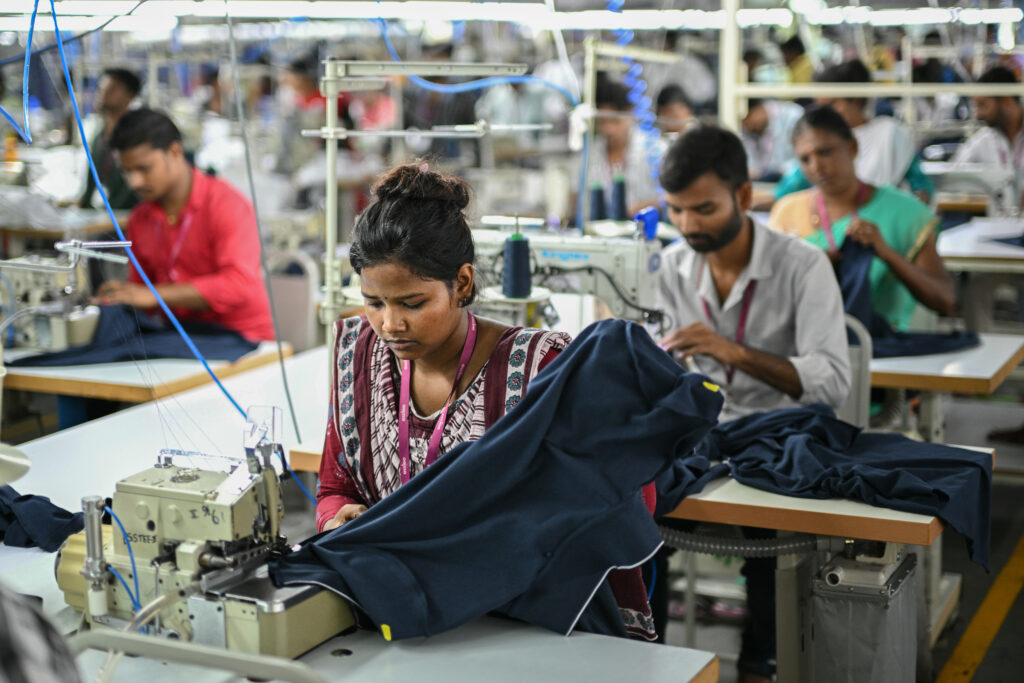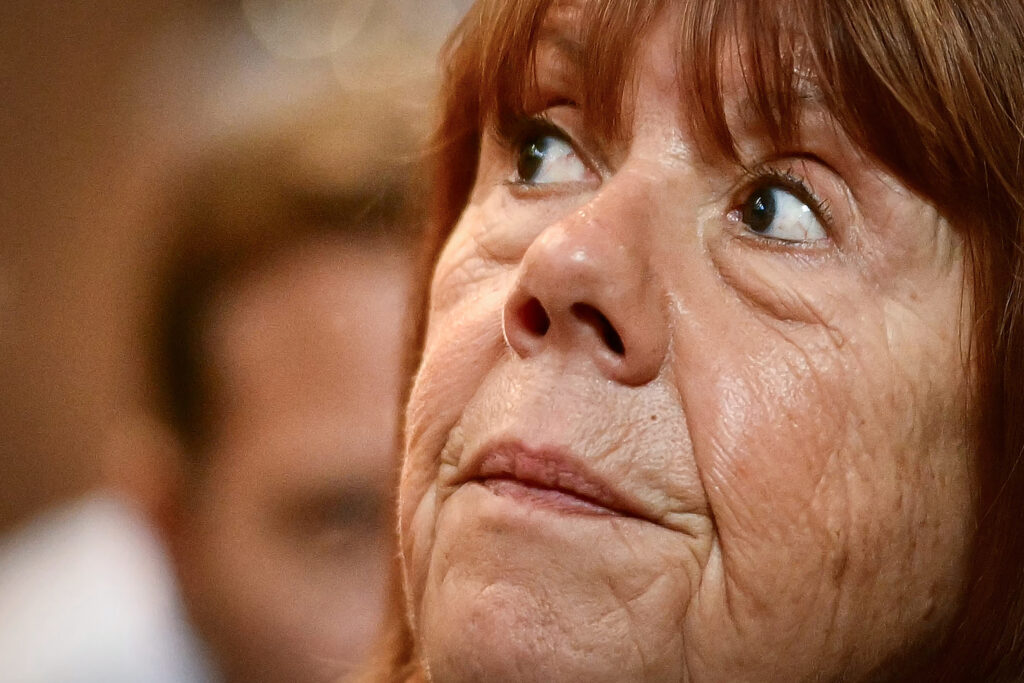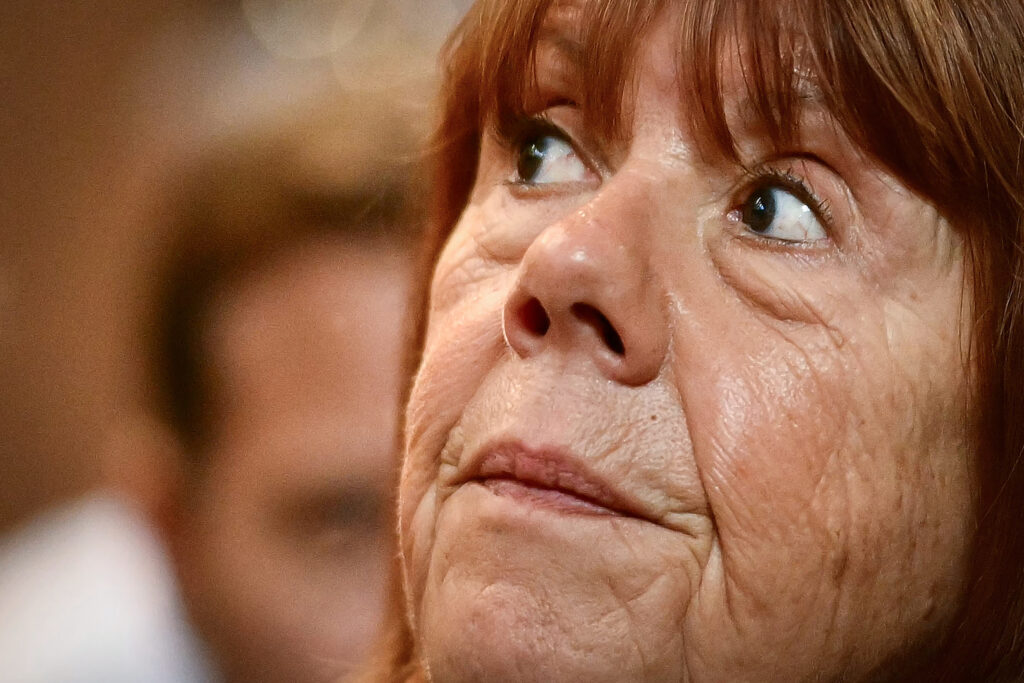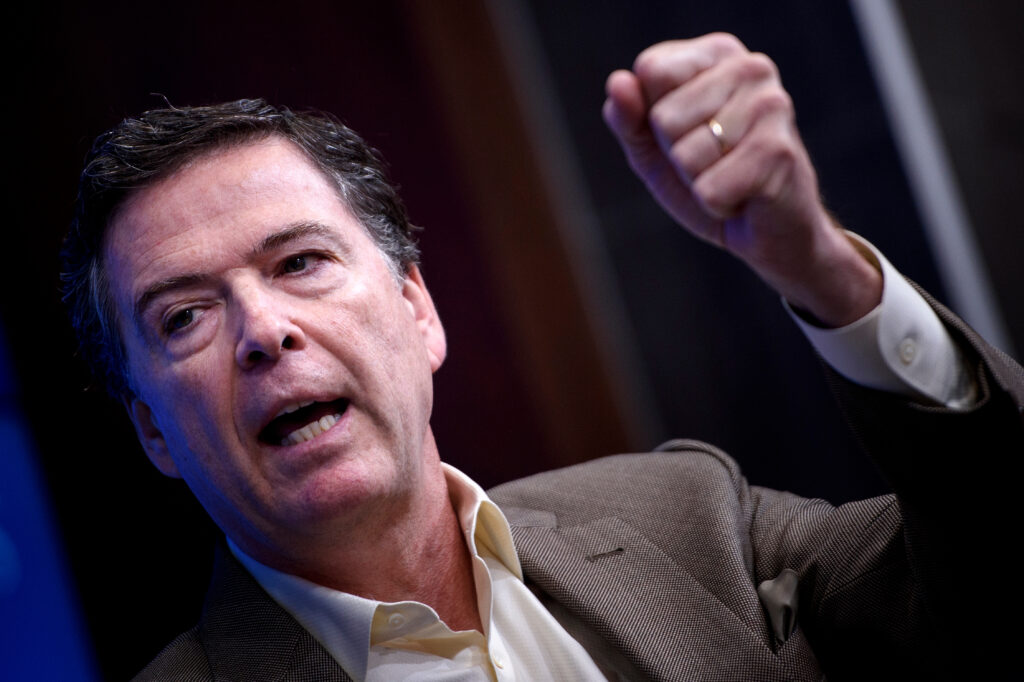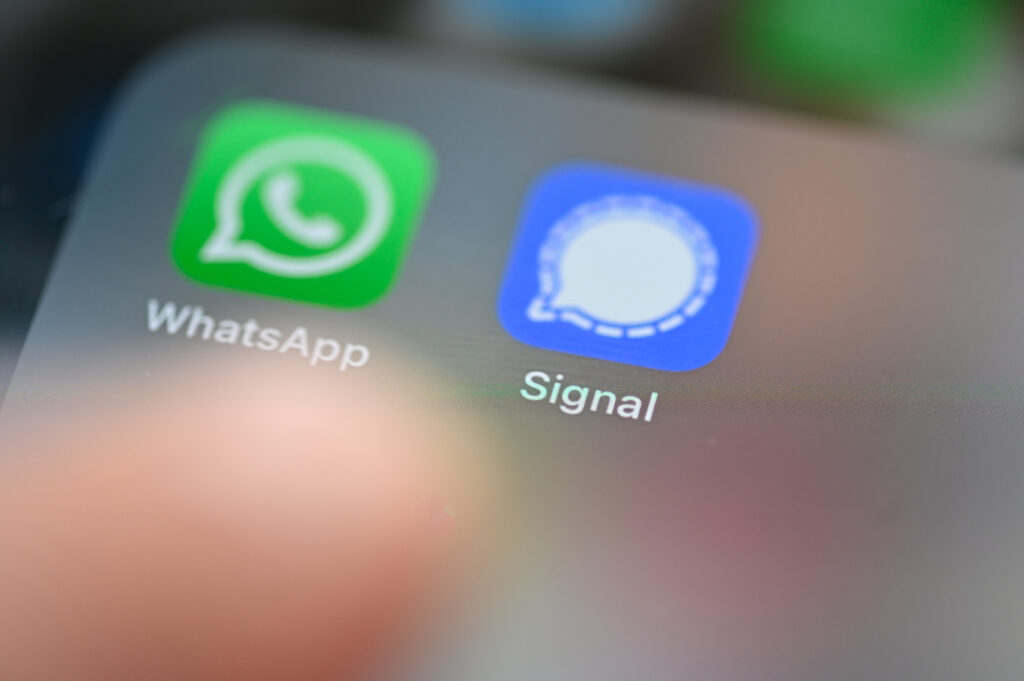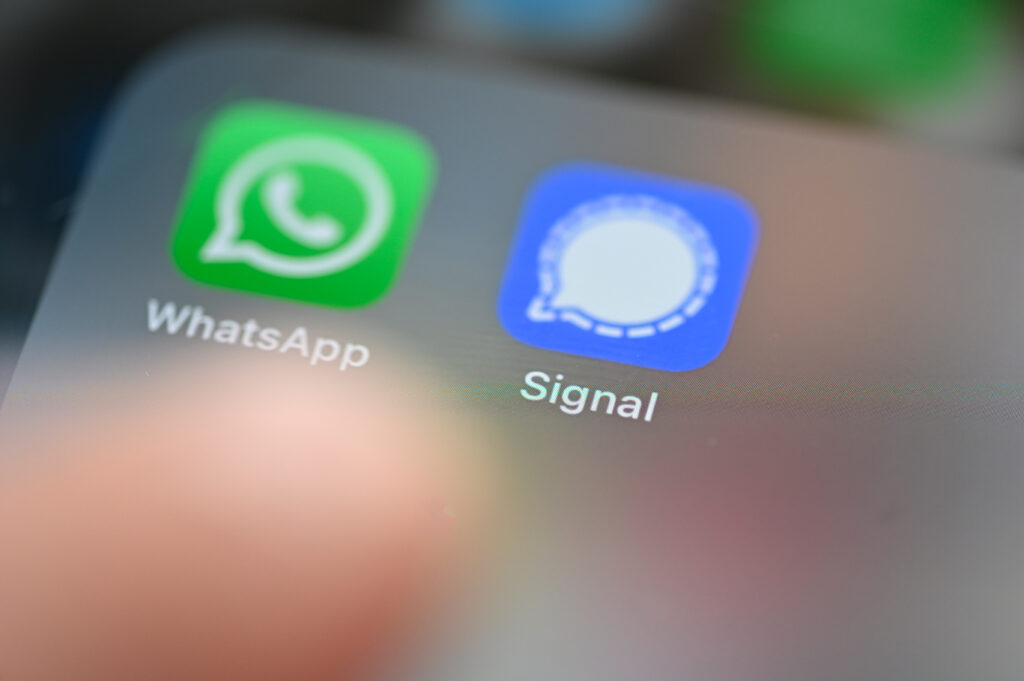US, Qatar, Turkey to join third day of Gaza peace talks in Egypt
Qatar’s prime minister and senior delegates from the United States and Turkey will join Hamas and Israeli negotiators on Wednesday for a third day of talks aimed at ending the Gaza war.Israel and Hamas are holding indirect negotiations in the Egyptian resort town of Sharm El-Sheikh, based on a 20-point plan proposed by US President Donald Trump last month.Qatar’s Prime Minister Sheikh Mohammed bin Abdulrahman Al Thani, Turkey’s intelligence chief Ibrahim Kalin, Trump’s special Middle East envoy Steve Witkoff and son-in-law Jared Kushner are all due to attend the talks.”There’s a real chance that we could do something,” Trump told reporters in the Oval Office on Tuesday, adding that US negotiators were also involved in the talks.”I think there’s a possibility that we could have peace in the Middle East. It’s something even beyond the Gaza situation. We want a release of the hostages immediately.” Trump said the United States would do “everything possible to make sure everyone adheres to the deal” if Hamas and Israel do agree on a ceasefire.The talks came as Israel commemorated the second anniversary of Hamas’s October 7, 2023 attack that triggered the war.At the close of the Jewish festival of Sukkot, Hamas-led militants launched the deadliest attack on Israel in the country’s history, sparking a huge retaliatory offensive in Gaza.It resulted in the deaths of 1,219 people, mostly civilians, according to an AFP tally based on official Israeli figures.Militants also took 251 people hostage into Gaza, of whom 47 remain captive, including 25 the Israeli military says are dead.Global pressure to end the war has escalated, with much of Gaza flattened, a UN-declared famine unfolding and Israeli hostage families still longing for their loved ones’ return.A UN probe accused last month Israel of genocide in Gaza while rights groups have accused Hamas of committing war crimes and crimes against humanity during the October 7 attack. Both sides reject the allegations.Hundreds of thousands of protesters joined pro-Palestinian mass demonstrations in cities across the world last weekend, calling for an immediate end to the war, including in Italy, Spain, Ireland and Britain.Demonstrators in the Netherlands called for their government to recognise a Palestinian state, while tens of thousands in Britain defied Prime Minister Keir Starmer’s calls to skip rallies, holding vigils and gatherings on the October 7 anniversary.- ‘Guarantees’ -Hamas’s top negotiator, Khalil al-Hayya, said the Islamist group wants “guarantees from President Trump and the sponsor countries that the war will end once and for all”.Trump’s plan calls for a ceasefire, the release of all the hostages, Hamas’s disarmament and a gradual Israeli withdrawal from Gaza.The plan received positive responses from both Israel and Hamas and prompted indirect talks in Egypt since Monday.A Palestinian source close to the Hamas negotiating team said Tuesday’s session included Hamas discussing “the initial maps presented by the Israeli side regarding the withdrawal of troops as well as the mechanism and timetable for the hostage-prisoner exchange”.US representatives Witkoff and Kushner were expected to arrive in Egypt on Wednesday, according to Egyptian Foreign Minister Badr Abdelatty, after they were initially expected to arrive last weekend.”The primary guarantee of success at this stage is US President Trump himself… even if it comes to a point to require him imposing a vision,” he said.Israel’s military campaign in Gaza has killed at least 67,160 people, according to the health ministry in the Hamas-run territory, figures the United Nations considers credible.The data does not distinguish between civilians and combatants but indicates that over half of the dead are women and children.burs/dv/dhw/tc
Indian garment exporters reel under US tariffs
When Donald Trump was elected, Indian garment exporter R.K. Sivasubramaniam thought the new US president would boost business and invested heavily in anticipation of a boom.But less than a year later, everything is “upside down”, he admits with a pained smile.Trump’s 50 percent tariffs on Indian goods, imposed in August, have upset the country’s $11 billion textile export industry and shaken confidence in the US market.Sivasubramaniam’s Raft Garments factory in southern India, normally frenetic with humming sewing machines, is quieter and work hours have been cut, hitting employees’ paypackets.If his US buyers turn to other suppliers, half his business could vanish.Meanwhile, half a million garments sit in towering stacks, ready for shipment but stalled over who will pay the new duties.Buyers are asking for a 16-20 percent discount.”We cannot give that much,” said Sivasubramaniam, whose desk carries crossed US and Indian flags. “It’s a very huge loss for us.”If Raft doesn’t shoulder part of the duties, it won’t be paid for garments already produced — leaving it unable to cover costs.”If it continues for another month… we cannot give work to our employees,” he warned.Trump’s anger at India’s purchases of Russian oil — which Washington says help finance Moscow’s war in Ukraine — has left New Delhi facing some of the world’s steepest tariffs.A trade deal that could ease that hinges partly on progress in peace talks.But the fallout is being felt in Tiruppur, in the southern state of Tamil Nadu.- ‘Worst possible situation’ -Dubbed India’s “knitwear capital”, and “Dollar City” for its export earnings, the small industrial town produced $5 billion in garments last fiscal year, two-fifths going to the United States. Its lanes are dotted with thousands of units including dyeing, embroidery and sewing workshops.Manufacturers paint a grim picture.”US orders have largely stopped, around 80 percent of the US business has reduced,” said Ramesh Jebaraj of Trinity Tex.In the same season last year, he produced 100,000 garments.Now he has barely a fifth of that — forcing him to seek buyers in Israel and the United Arab Emirates.”This is the situation across Tiruppur,” he told AFP. “Some of the bigger factories are on the verge of closing some of their units.”Alexander John of NC John Garments, which supplies Walt Disney, called the tariff standoff “the worst possible situation any business can be in”.With his US orders “completely at a standstill”, he has cut shifts and laid off workers.To stay afloat, he is looking to Europe and Britain but said “none of these markets can replace the US”.Tamil Nadu Chief Minister M.K. Stalin has warned that up to three million jobs could be at risk across the state’s textile belt, a grim prospect for a country struggling to provide well-paid work for its youth.Local industry associations say they have so far avoided widespread layoffs by agreeing to steep discounts on US shipments.”In the short term, we’re giving discounts to the customer ranging from 20 to 25 percent,” said N. Thirukkumaran, general secretary of the Tiruppur Exporters Association.But he admits it is not a long-term solution, and has pleaded for government support.- ‘We are helpless’ -Exporters describe the move as a calculated gamble, by selling at a loss to maintain US buyer relationships while awaiting a trade deal.At RRK Cotton’s facility in Palladam, 17 kilometres (10 miles) from Tiruppur, dimly lit production halls are quieter than normal.Owner R. Rajkumar, a former tailor who built his business over three decades, has closed two factories and furloughed some staff.”This is a situation nobody could have anticipated,” he said, adding that he was running three factories fulfilling European orders, and shipping some US orders after giving a discount.He fears the next ordering cycle could be disrupted if US buyers shift to rivals such as Vietnam or Bangladesh.All that depends on a trade deal.Meanwhile, anger and confusion run deep among workers and business owners.”My tailor… He doesn’t know what is a trade war, or why India is buying oil from Russia, and why it is affecting our lives, our bread,” said Kumar Duraiswamy, CEO of Eastern Global Clothing.”The problem is we are helpless,” he added.N. Karthick Raja, 38, employed at a small embroidery unit now running reduced shifts, fears for his livelihood.”If this job goes away, I don’t know what I will do next,” he said. “America has abandoned us, more or less.”
Indian garment exporters reel under US tariffs
When Donald Trump was elected, Indian garment exporter R.K. Sivasubramaniam thought the new US president would boost business and invested heavily in anticipation of a boom.But less than a year later, everything is “upside down”, he admits with a pained smile.Trump’s 50 percent tariffs on Indian goods, imposed in August, have upset the country’s $11 billion textile export industry and shaken confidence in the US market.Sivasubramaniam’s Raft Garments factory in southern India, normally frenetic with humming sewing machines, is quieter and work hours have been cut, hitting employees’ paypackets.If his US buyers turn to other suppliers, half his business could vanish.Meanwhile, half a million garments sit in towering stacks, ready for shipment but stalled over who will pay the new duties.Buyers are asking for a 16-20 percent discount.”We cannot give that much,” said Sivasubramaniam, whose desk carries crossed US and Indian flags. “It’s a very huge loss for us.”If Raft doesn’t shoulder part of the duties, it won’t be paid for garments already produced — leaving it unable to cover costs.”If it continues for another month… we cannot give work to our employees,” he warned.Trump’s anger at India’s purchases of Russian oil — which Washington says help finance Moscow’s war in Ukraine — has left New Delhi facing some of the world’s steepest tariffs.A trade deal that could ease that hinges partly on progress in peace talks.But the fallout is being felt in Tiruppur, in the southern state of Tamil Nadu.- ‘Worst possible situation’ -Dubbed India’s “knitwear capital”, and “Dollar City” for its export earnings, the small industrial town produced $5 billion in garments last fiscal year, two-fifths going to the United States. Its lanes are dotted with thousands of units including dyeing, embroidery and sewing workshops.Manufacturers paint a grim picture.”US orders have largely stopped, around 80 percent of the US business has reduced,” said Ramesh Jebaraj of Trinity Tex.In the same season last year, he produced 100,000 garments.Now he has barely a fifth of that — forcing him to seek buyers in Israel and the United Arab Emirates.”This is the situation across Tiruppur,” he told AFP. “Some of the bigger factories are on the verge of closing some of their units.”Alexander John of NC John Garments, which supplies Walt Disney, called the tariff standoff “the worst possible situation any business can be in”.With his US orders “completely at a standstill”, he has cut shifts and laid off workers.To stay afloat, he is looking to Europe and Britain but said “none of these markets can replace the US”.Tamil Nadu Chief Minister M.K. Stalin has warned that up to three million jobs could be at risk across the state’s textile belt, a grim prospect for a country struggling to provide well-paid work for its youth.Local industry associations say they have so far avoided widespread layoffs by agreeing to steep discounts on US shipments.”In the short term, we’re giving discounts to the customer ranging from 20 to 25 percent,” said N. Thirukkumaran, general secretary of the Tiruppur Exporters Association.But he admits it is not a long-term solution, and has pleaded for government support.- ‘We are helpless’ -Exporters describe the move as a calculated gamble, by selling at a loss to maintain US buyer relationships while awaiting a trade deal.At RRK Cotton’s facility in Palladam, 17 kilometres (10 miles) from Tiruppur, dimly lit production halls are quieter than normal.Owner R. Rajkumar, a former tailor who built his business over three decades, has closed two factories and furloughed some staff.”This is a situation nobody could have anticipated,” he said, adding that he was running three factories fulfilling European orders, and shipping some US orders after giving a discount.He fears the next ordering cycle could be disrupted if US buyers shift to rivals such as Vietnam or Bangladesh.All that depends on a trade deal.Meanwhile, anger and confusion run deep among workers and business owners.”My tailor… He doesn’t know what is a trade war, or why India is buying oil from Russia, and why it is affecting our lives, our bread,” said Kumar Duraiswamy, CEO of Eastern Global Clothing.”The problem is we are helpless,” he added.N. Karthick Raja, 38, employed at a small embroidery unit now running reduced shifts, fears for his livelihood.”If this job goes away, I don’t know what I will do next,” he said. “America has abandoned us, more or less.”
Appel des viols de Mazan: confrontation entre l’accusé et Gisèle Pelicot
Gisèle Pelicot et le seul des hommes accusés de l’avoir violée à avoir maintenu son appel s’expriment mercredi devant la cour d’assises du Gard, une confrontation à l’intensité encore renforcée par la diffusion prévue des vidéos filmées par l’ex-mari de la victime.Restée discrète depuis le verdict en décembre du procès des viols de Mazan, où les 51 accusés de cette affaire retentissante symbolique des violences sexuelles et de la soumission chimique avaient été condamnés, celle qui a accédé au statut d’icône féministe va devoir à nouveau prendre la parole “pour vraiment tourner la page”.”Elle aurait vraiment préféré rester là où elle est et se concentrer sur sa nouvelle vie et sur son avenir. Mais elle doit en passer par là”, comme l’explique à l’AFP un de ses avocats, Antoine Camus. Alors qu’elle avait fait face pendant près de quatre mois l’an dernier aux fréquentes dénégations des dizaines d’accusés réfutant avoir eu “l’intention” de la violer après que son ex-époux Dominique Pelicot l’eut préalablement sédatée, elle ne devrait pas minimiser l’importance de cet ultime dossier.”Il n’y a pas de petit viol. Celui de monsieur Dogan, ce dernier appelant, n’est pas moins grave que celui de tous les autres” devrait-elle rappeler, selon son avocat.Mme Pelicot, qui est accueillie à chacune de ses arrivées et sorties du tribunal de Nîmes par les applaudissements du public, ne s’est pas encore exprimée depuis l’ouverture du procès. Elle reste dans “l’incompréhension face au déni persistant en dépit même de la preuve matérielle”, selon son avocat.En tout, 107 photos et 14 vidéos de cette soirée du 28 juin 2019, lors de laquelle Husamettin Dogan s’était rendu à leur domicile conjugal de Mazan, dans le Vaucluse, sur invitation de Dominique Pelicot, ont été retrouvées sur un disque dur de celui-ci. – Premières plaidoiries -Preuves principales de ce procès d’appel, une dizaine de vidéos pourraient être diffusées juste avant son audition par la cour. Sur plusieurs d’entre elles, l’accusé apparaît en compagnie de Dominique Pelicot en train d’effectuer des pénétrations vaginales mais aussi des fellations forcées à une Gisèle Pelicot totalement inerte et ronflant. L’une d’entre elles pourrait être particulièrement débattue: on y voit M. Dogan pénétrer la septuagénaire et se retirer immédiatement quand celle-ci bouge légèrement, en raison “d’un réflexe ou d’une gêne”, a précisé mardi à la barre le commissaire divisionnaire Jérémie Bosse-Platière, qui a dirigé l’enquête de ce dossier hors-norme.Lors du procès de première instance, l’avocate de l’accusé, Sylvie Menvielle, avait saisi ce mouvement pour laisser planer le doute sur une éventuelle complicité de la victime, qui aurait pu ne pas être endormie, suscitant la colère de Gisèle Pelicot qui avait quitté brièvement la salle.M. Dogan, un ex-ouvrier du BTP de 44 ans, aura peut-être été préalablement questionné sur ce sujet lors de son interrogatoire. Initialement prévu mardi, il a été décalé à mercredi matin en raison du retard pris à l’audience.Il répètera sans doute à nouveau avoir été “piégé” par Dominique Pelicot, ce “manipulateur”, et avoir pensé participer au jeu consenti d’un couple libertin. Lors de sa première prise de parole lundi, ce Turc arrivé en France dans son enfance et au parcours compliqué avait déclaré ne “jamais” avoir “voulu violer” Mme Pelicot.Version contestée mardi par Dominique Pelicot qui, comparaissant depuis son box en qualité de simple témoin, a assuré qu’il cherchait “une personne pour abuser de son épouse à son insu” et que M. Dogan ne pouvait avoir “aucun doute quant à l’état de (son) épouse lors de sa venue”.Après l’audition de Gisèle Pelicot devraient débuter, vraisemblablement dans l’après-midi, les plaidoiries de ses avocats suivies du réquisitoire de l’avocat général. En première instance, 12 ans de prison avaient été requis contre l’accusé qui, poursuivi pour “viols aggravés”, risque un maximum de 20 ans de réclusion.Les plaidoiries des avocats de M. Dogan pourraient elles avoir lieu en fin de journée ou plus probablement être décalées à jeudi, jour désormais attendu pour le verdict.
Appel des viols de Mazan: confrontation entre l’accusé et Gisèle Pelicot
Gisèle Pelicot et le seul des hommes accusés de l’avoir violée à avoir maintenu son appel s’expriment mercredi devant la cour d’assises du Gard, une confrontation à l’intensité encore renforcée par la diffusion prévue des vidéos filmées par l’ex-mari de la victime.Restée discrète depuis le verdict en décembre du procès des viols de Mazan, où les 51 accusés de cette affaire retentissante symbolique des violences sexuelles et de la soumission chimique avaient été condamnés, celle qui a accédé au statut d’icône féministe va devoir à nouveau prendre la parole “pour vraiment tourner la page”.”Elle aurait vraiment préféré rester là où elle est et se concentrer sur sa nouvelle vie et sur son avenir. Mais elle doit en passer par là”, comme l’explique à l’AFP un de ses avocats, Antoine Camus. Alors qu’elle avait fait face pendant près de quatre mois l’an dernier aux fréquentes dénégations des dizaines d’accusés réfutant avoir eu “l’intention” de la violer après que son ex-époux Dominique Pelicot l’eut préalablement sédatée, elle ne devrait pas minimiser l’importance de cet ultime dossier.”Il n’y a pas de petit viol. Celui de monsieur Dogan, ce dernier appelant, n’est pas moins grave que celui de tous les autres” devrait-elle rappeler, selon son avocat.Mme Pelicot, qui est accueillie à chacune de ses arrivées et sorties du tribunal de Nîmes par les applaudissements du public, ne s’est pas encore exprimée depuis l’ouverture du procès. Elle reste dans “l’incompréhension face au déni persistant en dépit même de la preuve matérielle”, selon son avocat.En tout, 107 photos et 14 vidéos de cette soirée du 28 juin 2019, lors de laquelle Husamettin Dogan s’était rendu à leur domicile conjugal de Mazan, dans le Vaucluse, sur invitation de Dominique Pelicot, ont été retrouvées sur un disque dur de celui-ci. – Premières plaidoiries -Preuves principales de ce procès d’appel, une dizaine de vidéos pourraient être diffusées juste avant son audition par la cour. Sur plusieurs d’entre elles, l’accusé apparaît en compagnie de Dominique Pelicot en train d’effectuer des pénétrations vaginales mais aussi des fellations forcées à une Gisèle Pelicot totalement inerte et ronflant. L’une d’entre elles pourrait être particulièrement débattue: on y voit M. Dogan pénétrer la septuagénaire et se retirer immédiatement quand celle-ci bouge légèrement, en raison “d’un réflexe ou d’une gêne”, a précisé mardi à la barre le commissaire divisionnaire Jérémie Bosse-Platière, qui a dirigé l’enquête de ce dossier hors-norme.Lors du procès de première instance, l’avocate de l’accusé, Sylvie Menvielle, avait saisi ce mouvement pour laisser planer le doute sur une éventuelle complicité de la victime, qui aurait pu ne pas être endormie, suscitant la colère de Gisèle Pelicot qui avait quitté brièvement la salle.M. Dogan, un ex-ouvrier du BTP de 44 ans, aura peut-être été préalablement questionné sur ce sujet lors de son interrogatoire. Initialement prévu mardi, il a été décalé à mercredi matin en raison du retard pris à l’audience.Il répètera sans doute à nouveau avoir été “piégé” par Dominique Pelicot, ce “manipulateur”, et avoir pensé participer au jeu consenti d’un couple libertin. Lors de sa première prise de parole lundi, ce Turc arrivé en France dans son enfance et au parcours compliqué avait déclaré ne “jamais” avoir “voulu violer” Mme Pelicot.Version contestée mardi par Dominique Pelicot qui, comparaissant depuis son box en qualité de simple témoin, a assuré qu’il cherchait “une personne pour abuser de son épouse à son insu” et que M. Dogan ne pouvait avoir “aucun doute quant à l’état de (son) épouse lors de sa venue”.Après l’audition de Gisèle Pelicot devraient débuter, vraisemblablement dans l’après-midi, les plaidoiries de ses avocats suivies du réquisitoire de l’avocat général. En première instance, 12 ans de prison avaient été requis contre l’accusé qui, poursuivi pour “viols aggravés”, risque un maximum de 20 ans de réclusion.Les plaidoiries des avocats de M. Dogan pourraient elles avoir lieu en fin de journée ou plus probablement être décalées à jeudi, jour désormais attendu pour le verdict.
L’ex-directeur du FBI James Comey, bête noire de Trump, comparaît pour sa mise en accusation officielle
L’ancien directeur du FBI James Comey, l’une des bêtes noires du président américain Donald Trump, comparaît mercredi pour sa mise en accusation officielle pour entrave à une commission d’enquête parlementaire et fausses déclarations au Congrès.Il doit se présenter jeudi à partir de 10H00 locales (14H00 GMT) devant un tribunal fédéral à Alexandria, en banlieue de Washington. L’ancien chef de la police fédérale avait été brutalement limogé par Donald Trump en 2017, lors de son premier mandat, alors que le FBI enquêtait sur d’éventuelles ingérences russes dans la campagne de 2016. Il est depuis l’une des cibles de la vindicte du républicain.En septembre, Donald Trump avait publiquement fait pression sur sa ministre de la Justice Pam Bondi, s’étonnant sur sa plateforme Truth Social que James Comey n’ait toujours pas été inculpé.Il avait ensuite poussé à la démission le procureur du district est de Virginie, lui reprochant implicitement son manque de zèle sur ce dossier, et l’avait rapidement remplacé à ce poste stratégique par Lindsey Halligan, une conseillère de la Maison Blanche.Cette dernière a engagé les poursuites qui ont conduit à l’inculpation le 25 septembre de James Comey, 64 ans, en relation avec son témoignage oral au Sénat en septembre 2020.Il lui est spécifiquement reproché d’avoir nié, en réponse à une question d’un sénateur, avoir autorisé son adjoint à être cité sous le couvert de l’anonymat dans les médias sur des enquêtes sensibles conduites par le FBI.”JUSTICE EN AMERIQUE!”, s’était félicité sur Truth Social Donald Trump après l’annonce de l’inculpation de James Comey, décrit comme “l’un des pires êtres humains que ce pays ait connus”.L’intéressé lui avait rapidement répondu : “Je n’ai pas peur”. “La peur est l’arme des tyrans”, avait ajouté James Comey sur Instagram.”Ma famille et moi savons depuis des années ce qu’il en coûte de s’opposer à Donald Trump”, avait-il assuré, appelant à ne pas vivre “à genoux” face au président.”J’ai confiance dans la justice fédérale et je suis innocent”, avait-il conclu.Après l’éviction de James Comey, l’enquête sur les ingérences russes avait été confiée au procureur spécial Robert Mueller, son prédécesseur à la tête du FBI.Dans son rapport en 2019, M. Mueller avait conclu à l’insuffisance de preuves de collusion entre Moscou et l’équipe de Donald Trump, mais avait relevé une série de pressions troublantes exercées par le président sur son enquête.
Protection des enfants ou de la vie privée? L’UE relance un débat explosif
La protection des enfants justifie-t-elle de donner accès à ses messages privés? Cette question particulièrement délicate sera débattue mercredi par les 27 Etats membres de l’Union européenne, qui peinent à s’accorder sur un texte pour lutter contre la diffusion d’images pédopornographiques.Cette réunion à Bruxelles devrait déterminer l’avenir d’une initiative qui nourrit des débats enflammés depuis plusieurs années.Présentée en mai 2022 par la Commission européenne, la proposition vise à lutter contre la prolifération d’images et vidéos d’abus sexuels sur des enfants, et contre la sollicitation d’enfants par des pédocriminels.Soutenue par plusieurs associations de protection de l’enfance, elle permet d’obliger les plateformes et services de messagerie en ligne à détecter puis signaler de tels contenus.- “Stop Chat Control” -Mais les autorités européennes chargées de la protection des données, des eurodéputés et certains pays – dont l’Allemagne – estiment qu’elle constitue une atteinte “disproportionnée” au respect de la vie privée.Ces acteurs s’inquiètent tout particulièrement de l’utilisation d’une technologie qui permettrait de scanner les conversations privées d’utilisateurs, y compris sur des messageries cryptées comme Signal ou WhatsApp, à la recherche de matériel pédopornographique.Ce à quoi les messageries cryptées s’opposent fermement.”C’est la fin du secret de la correspondance, qui est essentiel pour les lanceurs d’alertes”, s’alarme le militant allemand Patrick Breyer, auprès de l’AFP. L’ancien eurodéputé craint qu’un tel texte soit, à terme, utilisé par des régimes autoritaires pour “réprimer des opposants politiques” en lisant leurs conversations.Les détracteurs du texte ont lancé une énorme campagne sur les réseaux sociaux pour tenter de bloquer son adoption. Sous la bannière “Stop Chat Control”, le surnom qu’ils ont donné au texte, ils inondent les responsables européens de messages en espérant peser sur les débats.”Je n’ai jamais vu ça sur aucun dossier”, confie un diplomate européen à l’AFP. “On reçoit des milliers de mails chaque jour”, affirme-t-il, sous couvert d’anonymat.Le Danemark, qui occupe la présidence de l’Union européenne et a confectionné la dernière mouture du texte, soutient qu’il est accompagné d’une série de garde-fous. A commencer par le fait que seules les images et les liens, pas les messages textes, pourraient être scannés par ce système. Et qu’il ne serait activé que par décision d’une autorité judiciaire ou administrative indépendante.- “Aucune surveillance généralisée” -“Soyons très clairs, il n’y a aucune surveillance généralisée des communications en ligne dans le cadre de cette proposition”, défend aussi un porte-parole de l’exécutif européen, Markus Lammert. “Il s’agit de protéger nos enfants contre un crime terrible, qui se répand en ligne”, affirme-t-il.Un rapport de l’organisation britannique Internet Watch Foundation (IWF) publié en 2024 estimait que 62% des contenus pédopornographiques étaient hébergés sur des serveurs situés dans l’UE.La détection de ces contenus par les plateformes se fait sur une base volontaire, ce que Bruxelles juge largement insuffisant étant donné l’ampleur du problème. Ces règles en vigueur courent jusqu’en avril 2026, en attendant l’adoption d’un nouveau texte qui ferait donc de cette détection une obligation légale pour tous.Quel avenir pour cette proposition? Deux pistes se dessineront à l’issue de la réunion de mercredi. – Soit l’Allemagne, dont le soutien est quasiment indispensable en raison de règles de majorité qualifiée, s’aligne sur la mesure. Ce qui permettrait aux Etats membres de l’adopter formellement lors d’une réunion à Luxembourg, prévue le 14 octobre.- Soit l’Allemagne s’abstient ou continue à s’opposer au texte, ce qui relancerait, une nouvelle fois, les tractations sur cet épineux dossier.Selon plusieurs responsables européens participant aux discussions, Berlin pourrait clarifier sa position au cours des prochaines heures.
Protection des enfants ou de la vie privée? L’UE relance un débat explosif
La protection des enfants justifie-t-elle de donner accès à ses messages privés? Cette question particulièrement délicate sera débattue mercredi par les 27 Etats membres de l’Union européenne, qui peinent à s’accorder sur un texte pour lutter contre la diffusion d’images pédopornographiques.Cette réunion à Bruxelles devrait déterminer l’avenir d’une initiative qui nourrit des débats enflammés depuis plusieurs années.Présentée en mai 2022 par la Commission européenne, la proposition vise à lutter contre la prolifération d’images et vidéos d’abus sexuels sur des enfants, et contre la sollicitation d’enfants par des pédocriminels.Soutenue par plusieurs associations de protection de l’enfance, elle permet d’obliger les plateformes et services de messagerie en ligne à détecter puis signaler de tels contenus.- “Stop Chat Control” -Mais les autorités européennes chargées de la protection des données, des eurodéputés et certains pays – dont l’Allemagne – estiment qu’elle constitue une atteinte “disproportionnée” au respect de la vie privée.Ces acteurs s’inquiètent tout particulièrement de l’utilisation d’une technologie qui permettrait de scanner les conversations privées d’utilisateurs, y compris sur des messageries cryptées comme Signal ou WhatsApp, à la recherche de matériel pédopornographique.Ce à quoi les messageries cryptées s’opposent fermement.”C’est la fin du secret de la correspondance, qui est essentiel pour les lanceurs d’alertes”, s’alarme le militant allemand Patrick Breyer, auprès de l’AFP. L’ancien eurodéputé craint qu’un tel texte soit, à terme, utilisé par des régimes autoritaires pour “réprimer des opposants politiques” en lisant leurs conversations.Les détracteurs du texte ont lancé une énorme campagne sur les réseaux sociaux pour tenter de bloquer son adoption. Sous la bannière “Stop Chat Control”, le surnom qu’ils ont donné au texte, ils inondent les responsables européens de messages en espérant peser sur les débats.”Je n’ai jamais vu ça sur aucun dossier”, confie un diplomate européen à l’AFP. “On reçoit des milliers de mails chaque jour”, affirme-t-il, sous couvert d’anonymat.Le Danemark, qui occupe la présidence de l’Union européenne et a confectionné la dernière mouture du texte, soutient qu’il est accompagné d’une série de garde-fous. A commencer par le fait que seules les images et les liens, pas les messages textes, pourraient être scannés par ce système. Et qu’il ne serait activé que par décision d’une autorité judiciaire ou administrative indépendante.- “Aucune surveillance généralisée” -“Soyons très clairs, il n’y a aucune surveillance généralisée des communications en ligne dans le cadre de cette proposition”, défend aussi un porte-parole de l’exécutif européen, Markus Lammert. “Il s’agit de protéger nos enfants contre un crime terrible, qui se répand en ligne”, affirme-t-il.Un rapport de l’organisation britannique Internet Watch Foundation (IWF) publié en 2024 estimait que 62% des contenus pédopornographiques étaient hébergés sur des serveurs situés dans l’UE.La détection de ces contenus par les plateformes se fait sur une base volontaire, ce que Bruxelles juge largement insuffisant étant donné l’ampleur du problème. Ces règles en vigueur courent jusqu’en avril 2026, en attendant l’adoption d’un nouveau texte qui ferait donc de cette détection une obligation légale pour tous.Quel avenir pour cette proposition? Deux pistes se dessineront à l’issue de la réunion de mercredi. – Soit l’Allemagne, dont le soutien est quasiment indispensable en raison de règles de majorité qualifiée, s’aligne sur la mesure. Ce qui permettrait aux Etats membres de l’adopter formellement lors d’une réunion à Luxembourg, prévue le 14 octobre.- Soit l’Allemagne s’abstient ou continue à s’opposer au texte, ce qui relancerait, une nouvelle fois, les tractations sur cet épineux dossier.Selon plusieurs responsables européens participant aux discussions, Berlin pourrait clarifier sa position au cours des prochaines heures.

